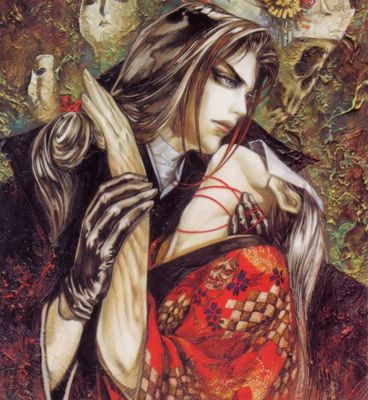DESCRIPTION is the key to fleshing out ANY scene if you want the Reader
to see in their minds the scene you envisioned when you wrote it.
Especially Sex Scenes.
Describe HOW the moisture Looks while sliding in slender rivulets down the inside of her thigh, THEN describe how it feels physically, THEN how the character feels emotionally about the fact that they're dripping from excitement.
Especially Sex Scenes.
Don't just call it 'juice'...
Describe HOW the moisture Looks while sliding in slender rivulets down the inside of her thigh, THEN describe how it feels physically, THEN how the character feels emotionally about the fact that they're dripping from excitement.
1. What it Looks & Feels like physically.
2. How they Feel about it emotionally.
You have FIVE senses -- USE THEM:
Texture, Flavor, Appearance, Sound, Aroma
The glistening moisture slid in slender rivulets down the inside of her thigh. The coolness of the moisture tickled in contrast to the warmth of her skin. Because her skirt was so short, her excitement was clearly visible to anyone who happened to be looking. Her cheeks filled with embarrassed warmth and she lowered her gaze, not wanting to know who might be staring at her, aware that she was aroused.
"So how do you DO that sort of writing?"
The same way you do anything; you PRACTICE. Exercise in Writing DESCRIPTION
Stage 1:
Watch a Movie
For this exercise, you will need the movie Sin City. If you don't have it, The Matrix or Equilibrium will do.

When a character is first introduced, LOOK at how the camera starts in Close Focus then pulls back to reveal the character's body; lovingly showing the viewer exactly what the character looks like, AND their distinguishing characteristics from top to bottom.

THEN the view expands wider, or pans around the character to disclose where that character is and what they are doing at that moment.

After those first few moments of sheer View, you get a narrative from the Point of View character, which may Not be the character the camera is showing you. You get the narrator's opinions, their feelings, and their delusions. THAT is how the viewer (the reader) learns about the character.

Once the movie is over, put on some music that fits the movie. (I actually have the soundtracks, to these.)
Next! Break out your remote control and Watch The Same Movie AGAIN -- but this time, with the volume OFF.
Sit on your couch and Out-Loud, Narrate what you are looking at. Do NOT Write anything.
Just talk to the TV screen Out Loud and Describe --in detail-- what you are looking at as though it was a book you were reading.
In a Nutshell:
Next!
- WATCH the movie undisturbed from beginning to end.
- NO INTERRUPTIONS.
Watch where the Camera looks.
Sin City in particular is a brilliant example of how to describe using pictures. The movie is filmed in black and white with splashes of color only where the viewer's eye needs to be.When a character is first introduced, LOOK at how the camera starts in Close Focus then pulls back to reveal the character's body; lovingly showing the viewer exactly what the character looks like, AND their distinguishing characteristics from top to bottom.
THEN the view expands wider, or pans around the character to disclose where that character is and what they are doing at that moment.
After those first few moments of sheer View, you get a narrative from the Point of View character, which may Not be the character the camera is showing you. You get the narrator's opinions, their feelings, and their delusions. THAT is how the viewer (the reader) learns about the character.
Once the movie is over, put on some music that fits the movie. (I actually have the soundtracks, to these.)
Next! Break out your remote control and Watch The Same Movie AGAIN -- but this time, with the volume OFF.
Sit on your couch and Out-Loud, Narrate what you are looking at. Do NOT Write anything.
Just talk to the TV screen Out Loud and Describe --in detail-- what you are looking at as though it was a book you were reading.
- Describe the Characters.
- Describe the Actions.
- Describe the Fight Scenes.
- Describe the Kisses.
- Describe the Backgrounds and Setting -- including the rooms and weather conditions!
In a Nutshell:
- Describe Out-Loud what you SEE
- Do NOT Write anything down.
- Keep Going until the movie is Over.
Next!
Stage 2:
Write a 1000 word Scene that introduces a character of YOURS.
Make sure you picture the scene in your mind with the same dramatic
camera angles and close-ups the movie and Describe it so that anyone
Reading it can clearly see it.
Compare that scene with any introductory scene in a story you've already written and SEE the difference.

Just so you know, this is an exercise I created to make my own writing more Visual back when I first started writing. The movie I used was "The Lost Boys", the original 1984 version. It really helped my ability to describe in my stories.
Compare that scene with any introductory scene in a story you've already written and SEE the difference.
Just so you know, this is an exercise I created to make my own writing more Visual back when I first started writing. The movie I used was "The Lost Boys", the original 1984 version. It really helped my ability to describe in my stories.
Enjoy!
Morgan Hawke
Morgan Hawke



